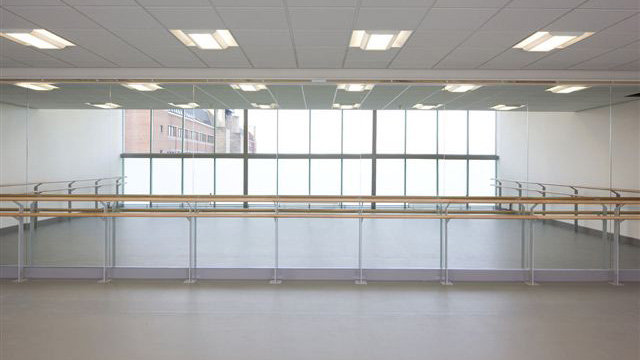5 Reasons Why an Actor Will Benefit From Taking Dance
Written by Savannah Rutherford
August 15, 2017
If you’re an actor but cringe at the thought of auditioning for a musical, this is for you. Not everyone has been in ballet or tap since they were a toddler. As actors, we learn many different techniques to help us create believable and relatable characters, but some of us have a hard time with movement and spatial awareness. Dance classes teach you grace, poise, and how to get out of your head while you’re moving across the floor. Not to mention it’s ah-mazing exercise.
1. First, find the class that’s right for you.

Open beginning ballet is the best place to start for those with very little or no dance experience. Like the Stanislavski technique, classical ballet is the foundation to other dance forms. Most dance schools offer at least one open adult class a week. If you live in a city with a professional ballet company that offers classes, you may have the opportunity to advance through levels as you improve. Additionally, once you become more comfortable with beginning ballet, you’ll be more comfortable to sign up for modern, jazz, tap, and other forms of dance.
2. Grace and poise are essential as you grow as an actor.

It’s up to us as performers to make bold choices so that our directors aren’t deciding every step for us. When you have awareness of what your body is doing and how you move from point A to point B, your mind is less occupied; therefore leaving more room to learn your lines and develop your character. Dance classes always take place in front of large mirrors so you’re able to watch yourself move. Being self-conscious of how your body looks restricts the freedom of movement; the more you see yourself in a full length mirror, the easier it’ll become.
3. Self-consciousness is a conflict in itself, however, and it takes everybody a different amount of time to conquer it.
If you don’t like the idea of watching yourself dance in a full length mirror, the best (and worst) way to get over that fear is to just keep doing it. Ballet keeps you focused on what you’re about to do, not what you just did. Classes move so quickly that you don’t have time to look down at your feet or worry about your appearance. In an open adult class, there is an incredibly high chance that most of the dancers alongside you are not professional dancers and probably haven’t been doing it their whole lives, either. Besides learning to further enhance your craft and get a little more in shape, what do you have to lose? Not only can class be really fun, many adults pick up ballet as strict exercise.
4. Dance classes teach you discipline—something we, as artists, are completely familiar with.

While everyone has their own unique style, sometimes that style can get in the way of core techniques, and we have to start back at the beginning. Dance forces you to remember your technique—turnout, muscle memory, where your head is turned, the five positions for your arms and feet, etc.—while you’re creating art within choreography. Most of the choreography is not possible without a balance of technique and grace. And, most obviously, repetition is the best way to learn something new. Your teacher will be calling out so many new terms—and in French—you have to keep up and pay close attention, but absolutely raise your hand and ask your teacher to explain something you’re not familiar with.
5. Class is for everybody.
If you’re a very green and eager new student, your teacher will do their best to cater some combinations to you, or better yet, have you practice some basics at the barre while the class is going over their petit allegro or center combination. You’re not the only person in the world who wasn’t able to take dance from their preschool days, and now that you’re chasing your dreams of being an actor, you’re doing everything you can to perfect your craft and immerse yourself into another art form. If you’re not a musician, dance classes will absolutely teach you rhythm and how to stay in time—which is helpful to managing different types of scenes, balancing emotions within your role, and memorizing those audition monologues in your binders. A well-rounded actor is the type of actor we should all strive to be. Not to mention you now have a new special skill for the bottom of your resume!
Need some advice? We’ve got you covered.
- 10 Helpful Tips To Help Actors Enjoy Life On Tour
- How to Bow (And What Your Bow Says About You)
- 10 Basic Rules of Stage Combat (That Keep Everyone Safe)
- 5 Advantages of Learning Stage Combat
- Don’t Be a Diva: Common Pitfalls and How to Avoid Them
- 9 Articles of Clothing Every Thespian Should Keep In Their Wardrobe
- What Makes an Actor Website WOW?
- “Is my attitude not getting me roles?” And Other Essential Questions for Actors
- 6 Steps to Memorizing Shakespeare
- 10 Tricks to Staying Healthy All Season Long
- What Does It Take to Break Into Voiceovers?
- 5 Tips for Nailing Your College Music Theatre Audition
- 10 Tips on Owning the Room at Competition
- How to Balance Theatre and Coursework
- The 10 Secrets of Great Understudying
- 10 Items Every Actor Should Carry in Their Rehearsal Bag
- 10 Items Every Dancer Should Keep in Their Rehearsal Bag
